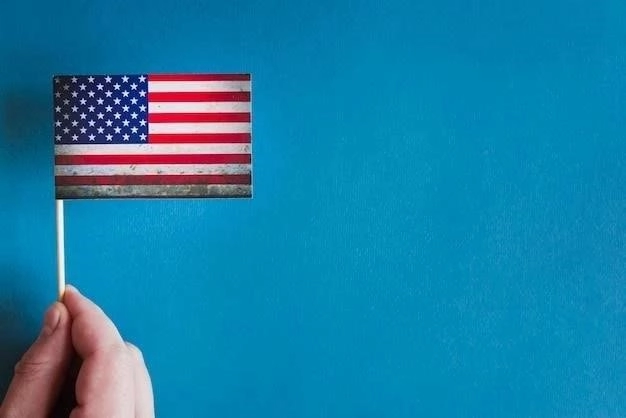Historical Context
The United States played a pivotal role in establishing the World Bank in 1944, emerging from the Bretton Woods Conference following World War II. The U.S. aimed to foster global economic reconstruction and development, shaping the institution’s initial structure and lending priorities. From the outset, the U.S. has remained a dominant force within the World Bank.

Financial Contributions and Voting Power
The United States has consistently maintained a position of paramount influence within the World Bank, primarily through its significant financial contributions and commensurate voting power. As a founding member and the largest shareholder, the U.S. holds a unique position in shaping the institution’s financial policies and lending directions.
The U.S. is the leading contributor to both the International Bank for Reconstruction and Development (IBRD), the World Bank’s lending arm for middle-income countries, and the International Development Association (IDA), which focuses on the poorest nations. This substantial financial commitment grants the U.S. considerable weight in determining the allocation of resources, influencing the types of development projects supported, and shaping the overall strategic direction of the World Bank Group.
Voting power within the World Bank is determined by a shareholder country’s capital subscription, reflecting its economic size and global influence. The United States holds approximately 15.62% of the voting power, a proportion that surpasses any other individual member. This dominant share grants the U.S. effective veto power over critical decisions requiring a supermajority vote, including amendments to the Bank’s Articles of Agreement, significant changes in capitalization, and the appointment of the World Bank President.
This confluence of substantial financial contributions and unparalleled voting power affords the United States a preeminent role in shaping the World Bank’s priorities, influencing its lending policies, and ensuring its alignment with broader U.S. foreign policy and development objectives. However, this level of influence has also attracted criticism, with some stakeholders expressing concerns about potential imbalances in representation and the prioritization of U.S. interests.

Policy Influence
The United States’ substantial financial contributions and dominant voting power within the World Bank translate into significant policy influence, shaping the institution’s lending priorities, development approaches, and overall strategic direction. This influence is exercised through a multifaceted approach, encompassing formal mechanisms such as voting rights and board representation, as well as informal channels like diplomatic engagement and technical expertise.
The U.S. Treasury Department plays a central role in overseeing U.S. participation in the World Bank, actively engaging with the institution’s management, staff, and other member countries to advance U.S. policy priorities. These priorities often reflect broader U.S. foreign policy objectives, such as promoting free markets and trade liberalization, fostering private sector-led growth, and advancing good governance principles.
The U.S. has consistently advocated for policy reforms within the World Bank, emphasizing fiscal responsibility, debt sustainability, and market-oriented solutions to development challenges. It has also played a leading role in shaping the institution’s focus on issues such as climate change, global health security, and gender equality, aligning the World Bank’s agenda with evolving global priorities.
However, the U.S.’s policy influence within the World Bank has also been a source of contention. Critics argue that it can lead to a disproportionate emphasis on U.S. interests and a neglect of developing countries’ specific needs and priorities. They also express concerns about conditionalities attached to World Bank loans, often reflecting U.S. economic policies, which some perceive as undermining national sovereignty and imposing a neo-liberal development model.
Despite these criticisms, the United States remains a pivotal actor in shaping the World Bank’s policy direction, leveraging its influence to promote its vision of global development and advance its foreign policy objectives. The ongoing debate surrounding the appropriate balance between U.S. influence and the representation of diverse perspectives remains a central challenge for the World Bank’s legitimacy and effectiveness in the 21st century.

Development Priorities
The United States has significantly shaped the World Bank’s development priorities, reflecting a blend of long-standing objectives and evolving global challenges. These priorities represent a fusion of U.S. foreign policy interests and a broader commitment to poverty reduction, economic growth, and sustainable development.
Historically, the U.S. has championed market-oriented approaches to development, emphasizing private sector-led growth, trade liberalization, and fiscal responsibility. This emphasis reflects a belief in the power of free markets to drive economic prosperity and lift nations out of poverty. Consequently, the World Bank, under U.S. influence, has often prioritized structural adjustment programs, promoting privatization, deregulation, and trade openness.

In recent decades, U.S. development priorities have evolved to encompass a broader range of issues, reflecting a growing awareness of global interconnectedness and the multifaceted nature of development challenges. Climate change mitigation and adaptation have emerged as top priorities, with the U.S. pushing for increased World Bank investments in renewable energy, climate-resilient infrastructure, and sustainable land management.
Global health security has also gained prominence, particularly in the wake of the COVID-19 pandemic. The U.S. has advocated for strengthening health systems in developing countries, supporting disease surveillance and response, and promoting equitable access to vaccines and essential healthcare services.
Furthermore, the U.S. has placed a renewed emphasis on good governance, recognizing its fundamental role in achieving sustainable development outcomes. It has promoted transparency, accountability, and anti-corruption measures as integral components of World Bank-supported projects, aiming to ensure that development assistance effectively reaches its intended beneficiaries and fosters equitable growth.

Criticisms and Challenges
The United States’ influential role within the World Bank has been subject to persistent criticism, reflecting broader debates about power dynamics in global governance and the effectiveness of development assistance. Critics raise concerns about the disproportionate influence of developed countries, potential conflicts of interest, and the imposition of a particular development model.
A primary point of contention is the weighted voting system, which grants the U.S. effective veto power. This arrangement, while reflecting relative economic size, is seen by some as undemocratic and undermining the voice and representation of developing countries within the institution. Critics argue that this power imbalance allows the U.S. to prioritize its own economic and geopolitical interests over the needs and priorities of borrowing countries.
Furthermore, concerns persist regarding the conditionalities attached to World Bank loans, often reflecting U.S.-promoted policies such as trade liberalization, privatization, and deregulation. These conditions, while intended to promote economic efficiency and good governance, are criticized by some for undermining national sovereignty, exacerbating inequality, and failing to account for local contexts and development priorities.
The U.S. emphasis on market-oriented solutions has also drawn criticism, with detractors arguing that it can lead to the prioritization of economic growth over social and environmental considerations. They point to instances where World Bank projects, driven by a focus on market forces, have resulted in negative social and environmental consequences, such as displacement of communities, environmental degradation, and exacerbation of inequality.
Addressing these criticisms and challenges is crucial for maintaining the legitimacy and effectiveness of the World Bank as a global development institution. Balancing the interests of powerful stakeholders like the United States with the needs and priorities of developing countries remains an ongoing challenge, requiring ongoing dialogue, reform efforts, and a commitment to inclusive and equitable development practices.

Future of the Relationship

The future of the relationship between the United States and the World Bank hinges on navigating evolving global dynamics, responding to emerging development challenges, and addressing persistent criticisms regarding power imbalances and development approaches. The U.S. will need to balance its national interests with a commitment to multilateralism and the needs of developing countries.
One significant challenge lies in adapting to the shifting geopolitical landscape, marked by the rise of new economic powers and a more multipolar world. The U.S. can no longer assume its historically dominant role and will need to engage constructively with emerging economies to ensure the World Bank remains a relevant and effective institution in the 21st century.
Addressing climate change is poised to be a defining issue for the World Bank’s future, demanding a significant increase in financial commitments and a shift towards sustainable development pathways. The U.S., as a major shareholder, will play a crucial role in determining the scale and ambition of the World Bank’s response to this global challenge.
Furthermore, the U.S. will need to engage with calls for reform within the World Bank, particularly regarding voting power and representation. A more equitable distribution of voting rights, giving greater voice to developing countries, could enhance the institution’s legitimacy, effectiveness, and responsiveness to diverse development needs.
Maintaining U.S. leadership within the World Bank will necessitate a nuanced approach that balances promoting its national interests with fostering a more inclusive and equitable global development agenda. Embracing a spirit of partnership, actively listening to the perspectives of developing countries, and pursuing reforms that enhance the institution’s legitimacy will be critical for ensuring a productive and mutually beneficial relationship in the years to come.










